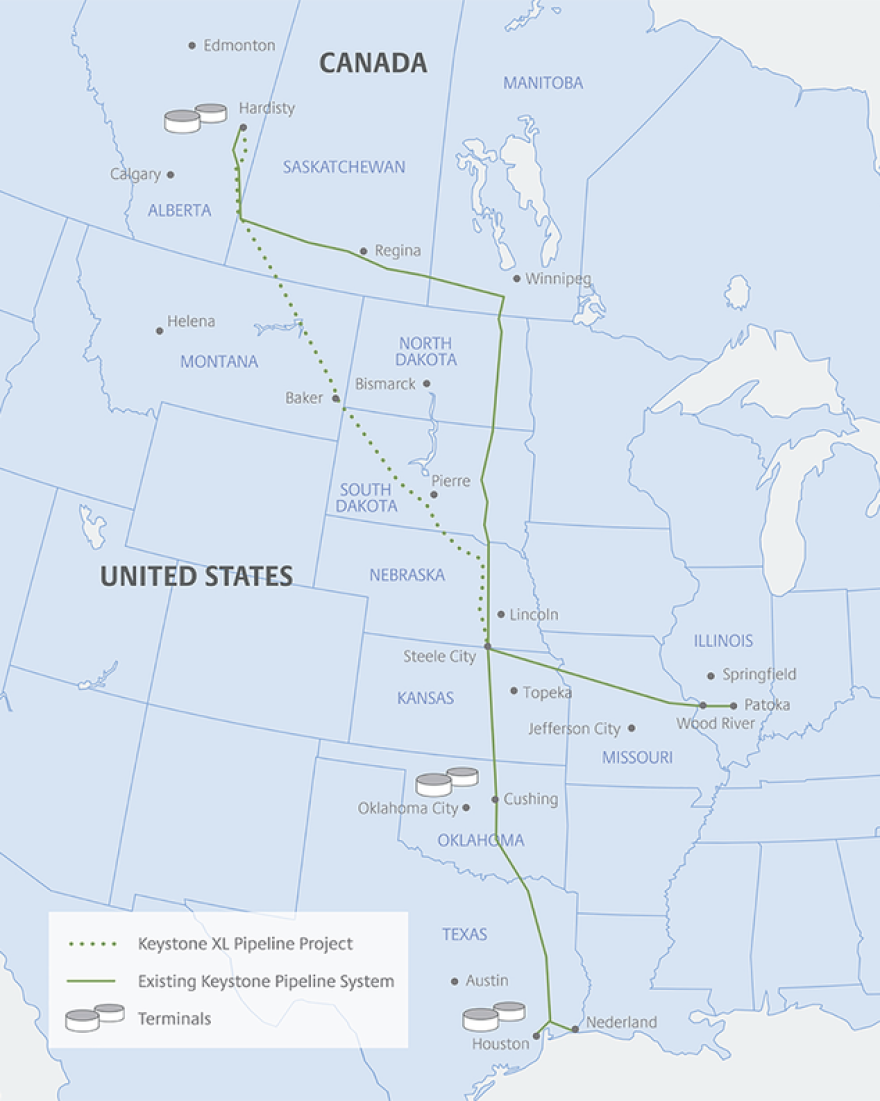The canceled Keystone XL Pipeline project had its final appearance this week after 13 years of hearings before a South Dakota commission.
"This has been possibly one of the longest, if not the longest, dockets that we have had," said Gary Hanson with the Public Utilities Commission.
It was a sad day for TC Energy, the Canadian company that wanted to build the pipeline.
"I have to tell you I never thought I'd be here asking for the termination of the project. I thought I'd be here telling you that the oil was flowing," said Bill Taylor, a Sioux Falls attorney who represents the company.
"This would have provided a tremendous amount of financial assistance to many of the communities along the route not just in South Dakota, but in every other state," Hanson said. "To me, it was a very political decision that was made."
Hanson was referencing President Joe Biden's decision to revoke a required permit for the project after years of opposition from Native American communities, environmental activists, and some landowners.
The PUC unanimously voted to return TC Energy's $15.6 million road bond after it found the Canadian company had successfully restored all of the roads it damaged.
It also said TC Energy will no longer need its public liaison and won't have to provide reports with updates on the project.
TC Energy still has a construction permit with the PUC that says it must reclaim the land and roads it uses. These permits aren't canceled in case the PUC discovers any extra work that companies need to complete.
Hanson said the PUC has received "a boatload of concerns from citizens regarding their easements."
"Working with these landowners expeditiously to resolve their questions would certainly go a long way," said PUC Chair Chris Nelson.
Taylor agreed to do that but said TC Energy has not yet decided what to do with their land rights gained through easements on private property.
TC Energy and the PUC agreed the commission has no authority over easements.
The KXL Pipeline would have carried Canadian tar sands oil through Montana, nine South Dakota counties, and Nebraska before connecting to the existing Keystone Pipeline, which ends at the Gulf of Mexico.

TC Energy announced it was canceling the project in June. The decision came after President Joe Biden nixed the cross-border permit on his first day in office.
The company never installed any KXL pipe in South Dakota but had permits, land, yards filled with pipes, and three nearly complete pump stations.
TC Energy has been taking action to leave South Dakota for months, removed underground pipes in Montana, and says the project "will not proceed."
That hasn't stopped Republicans across the country — Including Gov. Kristi Noem and South Dakota's congressional delegation — from calling for the pipeline to be built.
House Republicans have introduced a bill that would allow TC Energy to build the pipeline without the presidential permit. AndMontana’s governor asked Biden to approve the pipeline on the same day as the PUC hearing.
Republicans say Biden's energy policies — including canceling the KXL Pipeline — cause high gas prices while taking away U.S. jobs, revenue and political leverage. And they say this means more money and power for Russia's invasion of Ukraine.
Most energy experts say the war is just one factor in high gas costs since prices were already rising due to supply chain issues, labor shortages and other factors.
The Keystone XL Pipeline was years from completion when Biden canceled the permit. Energy experts say most of the crude would have been processed at American refineries along the Gulf Coast. But there’s debate over whether most of the final product would have been sold in the U.S. or to overseas markets.


